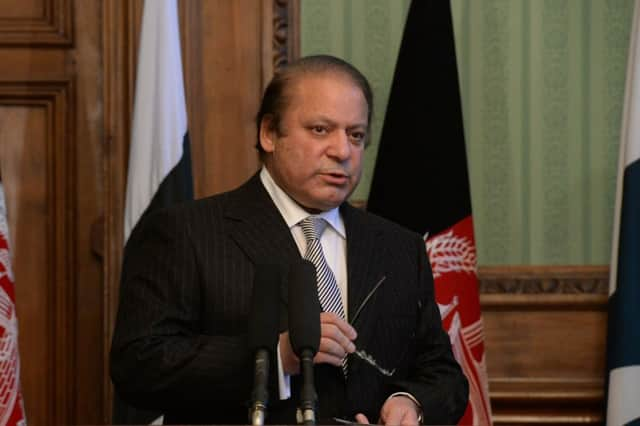Pakistan airstrikes force hundreds to flee


Military and intelligence officials said jets and helicopter gunships killed nearly 25 insurgents in the airstrikes yesterday.
They spoke anonymously as they were not authorised to talk to media.
Advertisement
Hide AdAdvertisement
Hide AdMost of the fleeing families are heading from North Waziristan to neighbouring Bannu city, said Lutfur Rehman, an officer with the provincial disaster management authority. Some of the families are heading to live with their relatives, he said.
Others, such as 65-year-old Janan Wazir and his 12 relatives, said they had no final destination in mind. “We really don’t know where we are going,” he said. He and his family were squeezed in a van with household items stuffed inside and packed on its roof. “We can’t see our women, our children in pain anymore,” he added.
Mr Wazir lived in Mir Ali, seen as a stronghold of the Pakistani Taleban and the target of many of the airstrikes.
Baitullah Wazir and his neighbour Zahir Wazir in Mir Ali also arrived in Bannu. They said aircraft and helicopters had been carrying out airstrikes almost every night, and that they did know who were being targeted.
“We just know we are looking for some safe haven,” he said.
Tens of thousands of Pakistanis have died over the past decade in the Taleban’s war against the government in Islamabad. The militants aim to enforce their fundamentalist brand of Islamic Sharia law.
The Waziristan tribal region is home to a mix of local and foreign al-Qaeda-linked militants. Some also fight against the United States and its allied Nato troops across the border in Afghanistan.
Pakistani prime minister Nawaz Sharif has long favoured peace talks over military action to end the bloodshed in the north-west, but he is also under pressure to retaliate for any Taleban violence.
Advertisement
Hide AdAdvertisement
Hide AdCritics also say the militants have also used the peace talks to strengthen their ranks and regroup, and call for military operations to disrupt the insurgents’ use of their north-west bases to stage attacks elsewhere in Pakistan.
Local media reported that Mr Sharif’s cabinet was scheduled to meet yesterday to discuss options for operations in the tribal region.
One of the two Pakistani officials claimed that the latest airstrikes targeted compounds where the militants train their recruits and store explosives and ammunition.
Pakistan has regularly launched strikes against Taleban targets after peace talks broke over the killings of 23 soldiers by the militants.
Several of Mr Sharif’s ministers have recently said that the negotiation was still an option, but the Taleban has to accept Pakistan’s constitution as supreme law. The militants have rejected this in favour of their interpretation of sharia law.
His information minister Pervaiz Rasheed also said that the government knew that families were being forced to flee. “They are our responsibility. We will take care of them,” he said.
Mr Rehman, the disaster management official, said his department had made preparations to accommodate 600,000 to 700,000 displaced people.